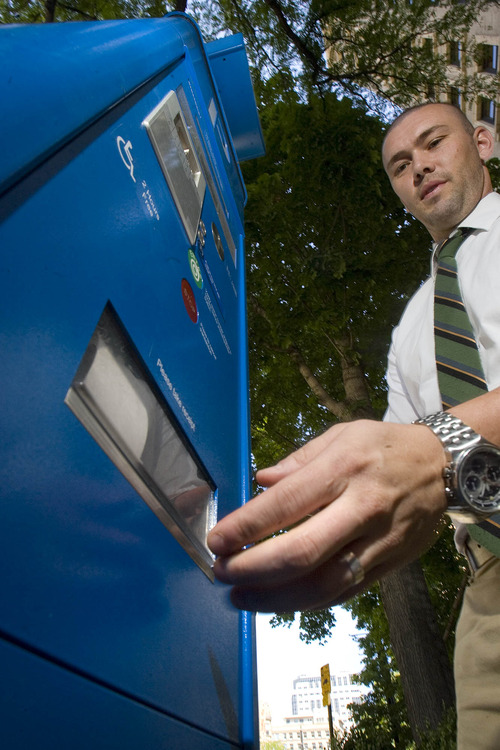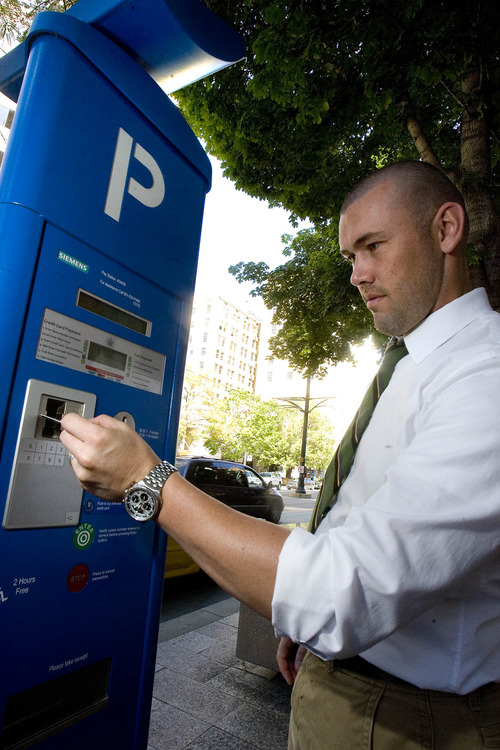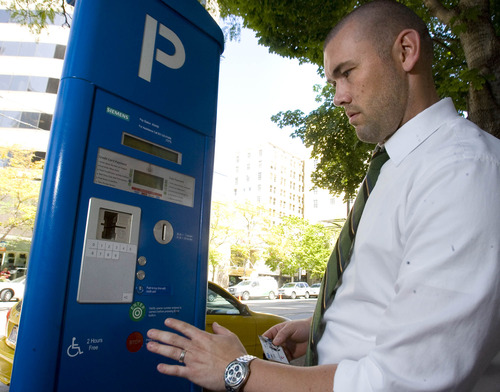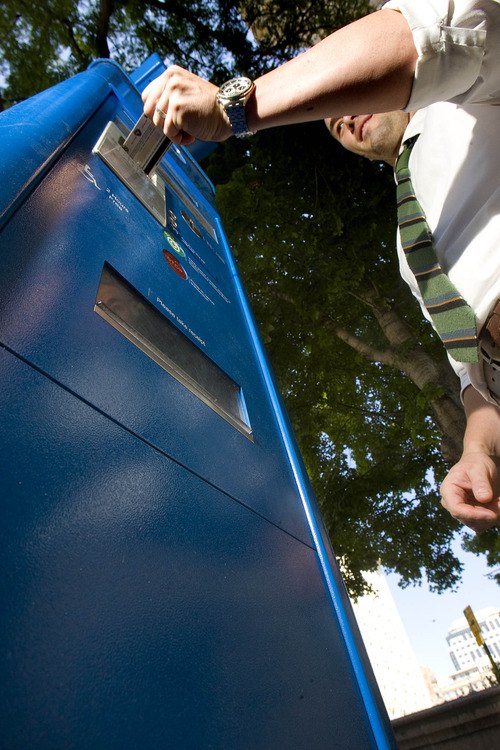This is an archived article that was published on sltrib.com in 2014, and information in the article may be outdated. It is provided only for personal research purposes and may not be reprinted.
Motorists are suing Salt Lake City over its electronic parking pay stations, claiming city code was never revised to authorize procedural changes that accompanied the new meters in 2011 and 2012.
The three plaintiffs, whose quest for class-action status could involve millions of dollars in parking tickets, point to city code that defines parking meters as "immediately contiguous" to the spaces being charged and "parking spaces" as being "adjacent to a parking meter." It also describes meters as coin-activated.
That language remained unchanged despite repeated advice to the City Council that the code needed to be updated when coin-operated meters were replaced with pay stations that cover multiple spaces, according to the lawsuit filed in 3rd District Court.
City attorneys drafted amendments to "more closely correspond to these new payment processes and to any pertinent enforcement procedures," according to a message the lawsuit cites from the city's Community and Economic Development Department.
References to the old, mechanical meters "are not conducive to the adequate use or regulation of the new parking pay stations," the proposed amendment read, according to the lawsuit. But the city didn't adopt the proposed changes.
Without updating the code, the city cannot legally fine motorists for parking violations reflected by the kiosk, the lawsuit argues.
"The city obtained the money ... without authority of law, and it is the city's duty to refund the money," the lawsuit states.
The plaintiffs, identified as Timothy Bivens, Antonio Arias and S. Steven Maese, have paid parking fines of $105, $380 and $1,450, respectively, since the electronic pay kiosks were installed.
But the lawsuit claims the city collected more than $3 million in parking tickets per year in that time, and anticipated $5.4 million in overdue parking-ticket receivables.
The lawsuit also claims that the city deprives cited motorists of due process by making appeals onerous, threatening fees far in excess of the value of the ticket and assessing overdue fines after 10 days — despite what the plaintiffs claim is a deadline of 20 days in city code.
The lawsuit seeks a refund of all parking-ticket revenue, court fees and collection costs, plus interest, and a halt to parking-meter violations until the city code is updated.
Art Raymond, a spokesman for Mayor Ralph Becker, said Thursday the administration had not seen the lawsuit and he could not comment.
City Council Chairman Charlie Luke said he would not speak to the merits of the suit. But he noted that the council is having an ongoing discussion about the municipality's troubled Aparc parking system.
The blue parking kiosks are fraught with problems, Luke conceded. Sometimes they won't take credit cards, and motorists have complained they received parking tickets with time still remaining. Last summer, the system overheated and was out of operation for several days.
Earlier this year, Juneau, Alaska, which had purchased a similar system from Aparc, abandoned it because it was too problematic, according to Juneau Mayor Merrill Stanford.
The parking system is "buggy" and for some people "not easy to use," said Salt Lake City Councilman Kyle LaMalfa.
He did not comment on the lawsuit, but noted that the city bought the Aparc system because it would accept credit cards and smartphone apps for payment. The previous system would take only coins.
"The question is, is the system so bad we have to abandon it and lose all the money we spent installing it, or whether we can limp along until we have paid for it and move on to something else?"
The council issued a seven-year bond for the $4.5 million parking system.









